Ukraine has been suffering more intense air attacks by russia since the last few weeks — particularly 9 and 12 July. It’s not just ‘news’ — it’s noticeable for me personally, even in the ‘relatively safe’ city of Lviv.
From russia with love
In the night of 9 July (01:55 to 05:43) russia fired more than 700 drones at Ukraine — a new record. Then, in the night of 12 July (02:33 to 05:05), Lviv and Chernivtsi were specially targeted. Lviv is a cultural (UNESCO) city without anything of military value — russia rarely singles it out for strikes, but these nights the russians show their love for Ukrainian culture.
Lviv was ‘lucky’ these nights in that there were no deaths but in other cities people did die. In Lviv, 12 people were reported injured on 12 July and dozens of buildings — including a kindergarten and university. The russians are changing tactics and focus more on civilian terror than military conquest, it seems.
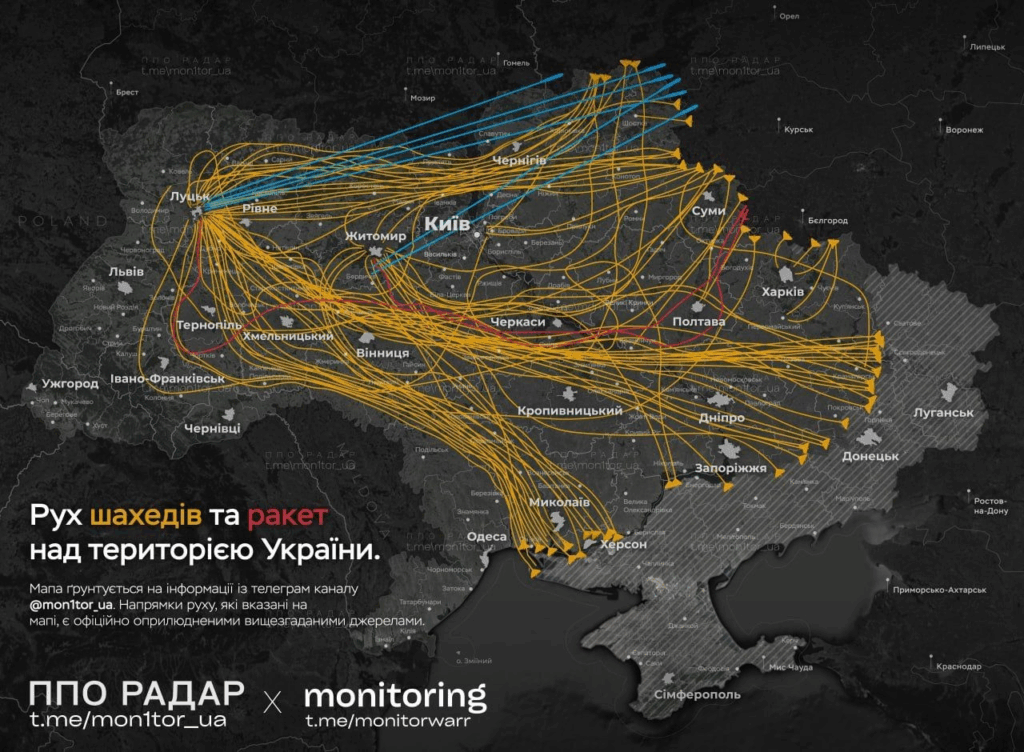



Apart from actual attacks with rockets and drones, russians also have fighter jets. Once a russian fighter plane takes off, the air raid alert for the whole of Ukraine activates, because those planes can get anywhere really quick. So one plane can have disproportionate impact.
Since yesterday, they’re also experimenting with triggering air alerts during office hours rather than night hours. Rather than disrupting our sleep, they seek to disrupt our day-to-day activities.
Responding to an air alert
When an air raid alert is triggered, a lot of systems are triggering simultaneously, causing a cacophony of alerts. The physical air raid alerts outside are beginning to scream loudly — and continue for a few minutes. My watch and mobile phone start pinging, as do those of those around me. The intercom makes some announcements.
“Увага! Повітряна тривога! Пройдіть, будь ласка, до укриття!”
(“Attention! Air raid alert! Please proceed to the shelter!”)
“Увагу! Відбій повітряної тривоги! Тримаймо наш дух бадьорим!”
(“Attention! Air raid alert over! Let us keep our spirits high!”)
In my experience, most alerts are fine-tuned to instil a sense of priority but remain somewhat mild on the ear and mind — as opposed to ambulances, which can sound distressing and terrifying. I have also not seen distressed people when air alerts are triggered — most people make their way to the shelter calmly. I do know people can be very distressed due to these sounds, so how people react to these alerts is really dependent on personal experience, ease of access to shelter, distance from the front etc.
Luckily, the UCU facility where I reside has good shelters. We are far enough removed from the front line so that we have ample time to seek shelter — we have 12 minutes, but near the front people have 12 seconds to seek shelter.
While in shelter
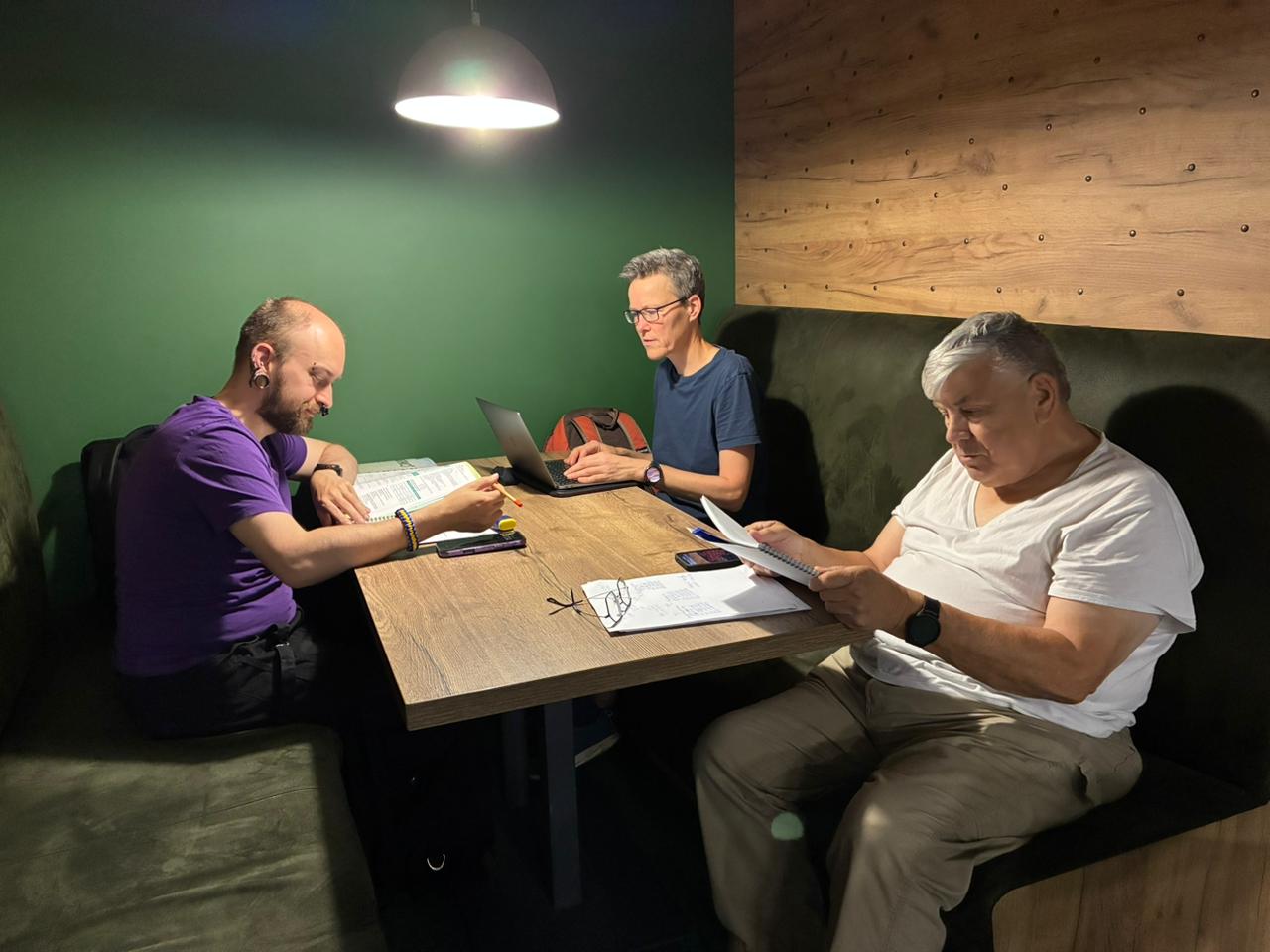
Sometimes, we have attacks during the evening or during the day. We gather in the shelter and often seek out other language students. We simply do some homework by ourselves, some chatting together or some other relaxation. There is also a pool table, sometimes used until 02:00 in the night. People can’t really expect their concentration to be left undisturbed — except if you have noise-cancelling headphones perhaps.
While I was the underground shelter during the nights, I tried to sleep with noise-cancelling headphones. It was bearable, but others I know didn’t have those conditions. Some co-students and teachers in Lviv reported not waking from any of the air raid alerts — intended to be loud and waking! — but only woke by the sound of anti-air defences launching, shooting down drones or explosions of such drones right outside their windows.
During the nightly attacks on 9 and 12 July, I’ve been getting extra alerts on my watch and mobile phone — “Increased air threat!” every so often. I suppose the air raids are so normal that people don’t always take them seriously initially. I didn’t get those extra messages in my first three weeks in Lviv, so when I see those messages — I’m taking it seriously.
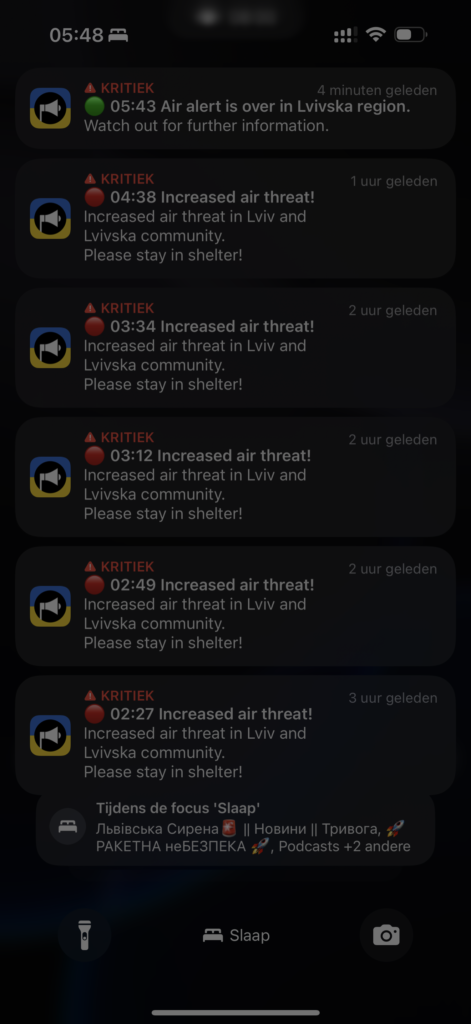
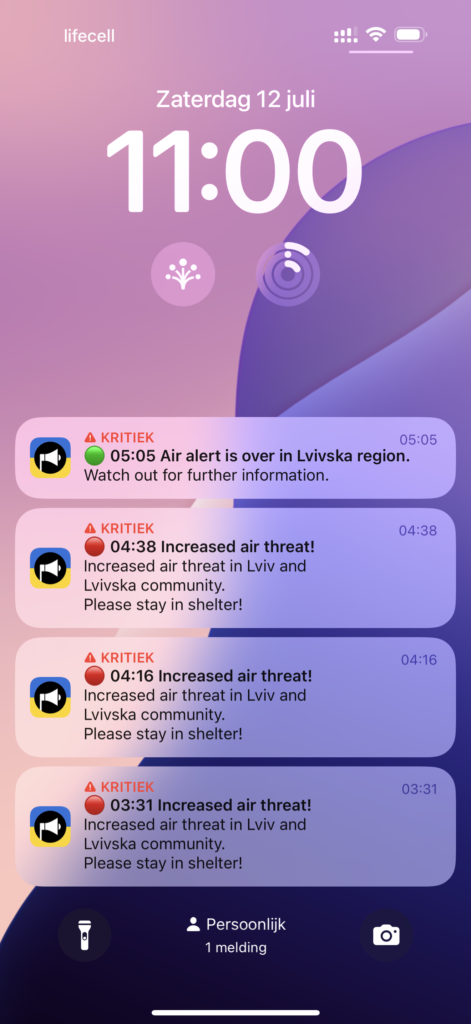
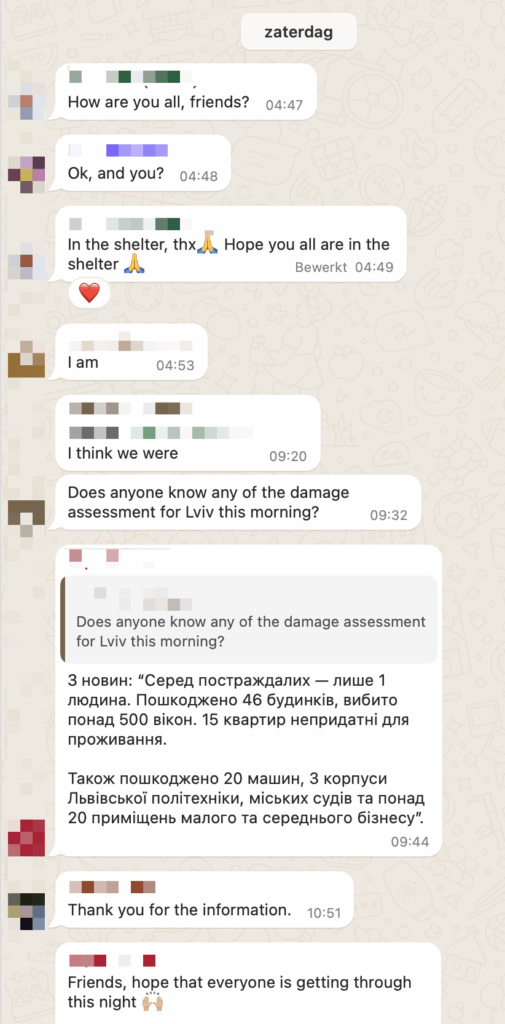
In conclusion
We live in a world that lets russia terrorise, murder and destroy with relative impunity for a long time already. So much so that a whole digital ecosystem around threats and risks is built and already optimised.
People also start ‘predicting’ when they’ll have a sleepless night again, including myself. If there have been too many nights without air raid in a row, people start imagining the next night must be a restless one. I notice I’m slowly being Pavlov’d to anticipate this restlessness — and actually go to bed later than I should because I think I’ll have to get out in an hour anyhow. And it’s true — one time I turned off the light to start sleeping, and the air raid began. I think I’ll not touch those light switches again…
When you hear news of russia ‘breaking records’ with its attacks on Ukraine, it really is not just some abstract new high score in an abstract game, or vague economic statistic. Whenever the russians send their regards, we even notice it directly and concretely — and there are unlucky victims every time.
